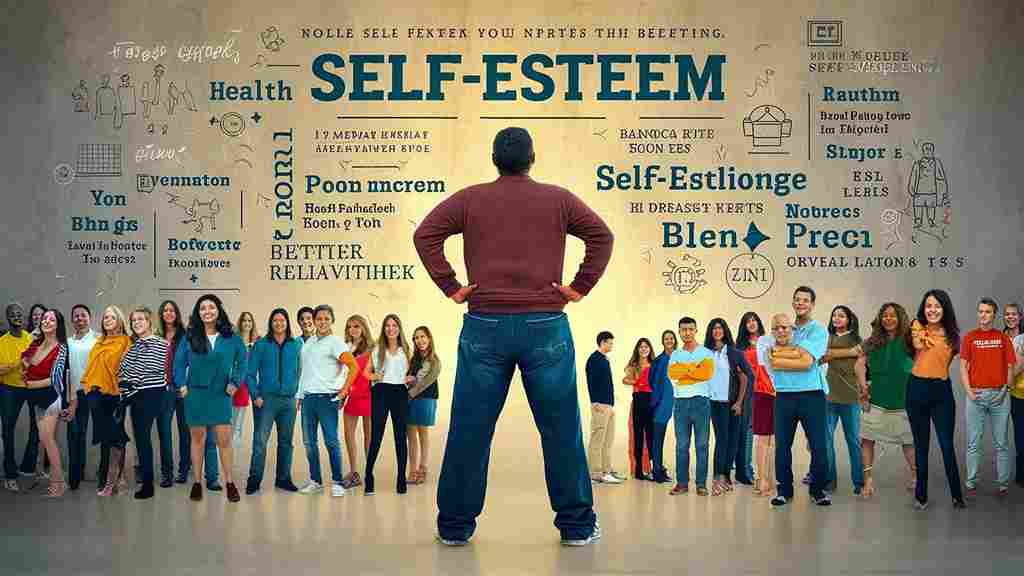Self-esteem is like the fuel that powers our confidence and resilience in life. It’s the belief in our own worth and abilities, and it plays a significant role in shaping our experiences and relationships.
While it might seem like a simple concept, its impact is profound. In this article we will explore 15 Benefits of Self-Esteem.
What is self-esteem?
Self-esteem is how you feel about yourself. It’s like having a little cheerleader inside you, saying, “You’re awesome!” It’s believing in your abilities and feeling good about who you are. When you have high self-esteem, you feel confident and happy.
Why is self-esteem important?
Self-esteem is important because it shapes how we see ourselves and how we tackle life’s challenges. When we believe in ourselves, we’re more confident, resilient, and able to pursue our goals with determination.
It affects our relationships, mental health, and overall happiness, making it crucial for leading a fulfilling life.

What is the benefits of self-esteem?
Understanding the benefits of self-esteem is important because it shows us how feeling good about ourselves can make life better.
When we know that self-esteem helps us feel more confident, handle challenges, and be happier, we’re more likely to work on building it.
It’s like knowing the secret to feeling good and living a more fulfilling life.
Confidence Boost – When you believe in yourself, you’re more likely to take on challenges with confidence and determination.
Resilience – High self-esteem helps you bounce back from setbacks and failures more easily, as you have faith in your ability to overcome obstacles.
Positive Outlook – It fosters a positive mindset, enabling you to see opportunities rather than focusing on limitations.
Better Relationships – Healthy self-esteem allows you to establish and maintain healthier boundaries in relationships, leading to more fulfilling connections.
Reduced Anxiety – With a strong sense of self-worth, you’re less likely to dwell on negative thoughts or worry excessively about what others think of you.
Improved Decision-Making – Self-assured individuals tend to make decisions more confidently, trusting their instincts and judgment.
Increased Motivation – When you believe in your capabilities, you’re more motivated to set and pursue meaningful goals.
Enhanced Performance – Higher self-esteem often correlates with improved performance in various areas of life, such as work, academics, and sports.
Better Mental Health – It serves as a protective factor against mental health issues like depression and anxiety, promoting emotional well-being.

Effective Communication – Assertiveness comes more naturally to those with healthy self-esteem, leading to clearer communication and fewer misunderstandings.
Self-Care – Valuing yourself encourages self-care practices, such as setting aside time for relaxation, exercise, and pursuing hobbies.
Less Fear of Failure – With self-esteem, failure is seen as a learning opportunity rather than a reflection of your worth, reducing the fear of trying new things.
Increased Productivity – Individuals with a positive self-image are often more productive, as they’re less likely to procrastinate or get bogged down by self-doubt.
Adaptability – Believing in yourself allows you to adapt to change more easily, as you’re confident in your ability to navigate unfamiliar situations.
Happiness – Ultimately, healthy self-esteem contributes to a greater overall sense of happiness and fulfillment in life.
Self-esteem and confidence are super important in life. When we feel good about ourselves and believe in our abilities, we can tackle anything that comes our way & enjoy better relationships.
10 Benefits of self-esteem in workplace
Knowing the benefits of self-esteem at work boosts productivity and improves relationships, creating a happier workplace.
Increased Productivity – Higher self-esteem leads to greater motivation and productivity at work.
Improved Leadership Skills – Confidence in oneself fosters effective leadership and decision-making abilities.
Better Teamwork – Individuals with strong self-esteem collaborate more effectively with colleagues and contribute positively to team dynamics.
Enhanced Resilience – Employees with high self-esteem bounce back quickly from setbacks, adapting to challenges with resilience.
Career Advancement – Self-assured individuals are more likely to pursue career opportunities and take calculated risks, leading to advancement.
Effective Communication – Positive self-esteem enables clear and assertive communication, reducing misunderstandings and conflicts.
Positive Work Environment – Employees with high self-esteem contribute to a more supportive and uplifting workplace culture.
Innovation and Creativity – Confidence encourages creative thinking and innovation, driving progress and problem-solving.
Reduced Stress – Self-assured employees experience less stress and anxiety, maintaining focus and composure during demanding situations.
Job Satisfaction – With greater confidence in their abilities, individuals derive greater satisfaction from their work, leading to long-term fulfillment and engagement.
In conclusion, self-esteem is truly invaluable. It affects every aspect of our lives, from our relationships to our career success.
By boosting our self-esteem, we can feel happier, become stronger, and enjoy better overall health and happiness.
So, let’s continue to prioritize building and maintaining our self-esteem, because when we believe in ourselves, anything is possible.
Related – 8 Tactics To Improve Your Self-esteem

